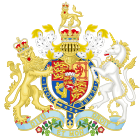- Charter Act of 1813
-
East India Company Act, 1813[1]
(Charter Act of 1813)
Parliament of the United KingdomLong title An Act for continuing in the East India Company, for a further Term, the Possession of the British Territories in India, together with certain exclusive Privileges; for establishing further Regulations for the Government of the said Territories, and the better Administration of Justice within the same; and for regulating the Trade to and from the Places within the Limits of the said Company's Charter Statute book chapter 53 Geo. 3 c. 155 Dates Royal Assent 21 July 1813 Other legislation Repealing legislation Government of India Act 1915 Status: Repealed The Charter Act of 1813 was an Act of the Parliament of the United Kingdom which renewed the charter issued to the British East India Company, and continued the Company's rule in India. However, the Company's commercial monopoly was ended, except for the tea trade and the trade with China. Reflecting the growth of British power in India, the Act expressly asserted the Crown's sovereignty over British India.
The power of the provincial governments and courts in India over European British subjects was also strengthened by the Act.[2] Financial provision was also made to encourage a revival in Indian literature and for the promotion of science.[3]
The Company's charter had previously been renewed by the Charter Act of 1793, and was next renewed by the Government of India Act 1833.
References
- ^ Short title as conferred by the Short Titles Act 1896, s. 1; the modern convention for the citation of short titles omits the comma after the word "Act".
- ^ A Constitutional History of India 1600–1935, Arthur Berriedale Keith, Methuen, London, 1936, p. 128
- ^ Keith, p. 129
Categories:- United Kingdom Acts of Parliament 1813
- 1813 in the United Kingdom
- 1793 in India
- Acts of the Parliament of the United Kingdom
- British rule in India
- British East India Company
- Indian history stubs
Wikimedia Foundation. 2010.
